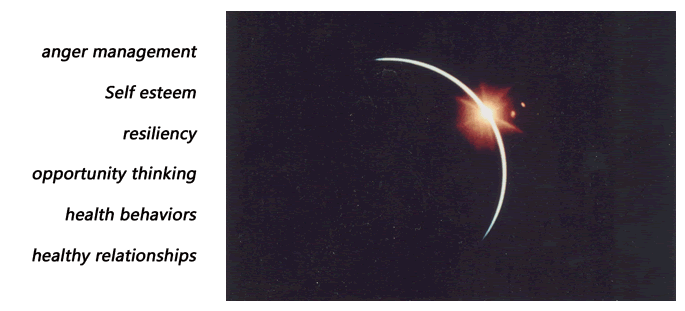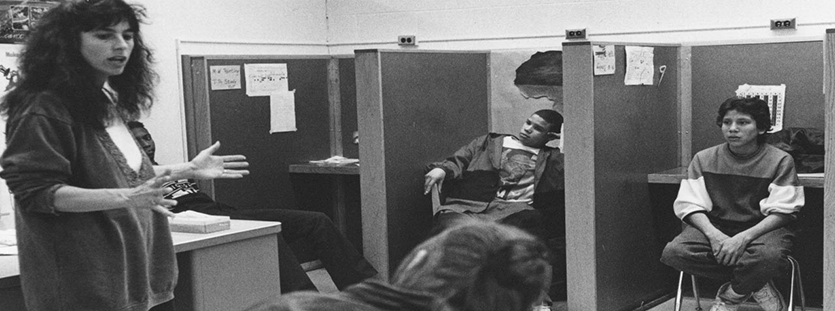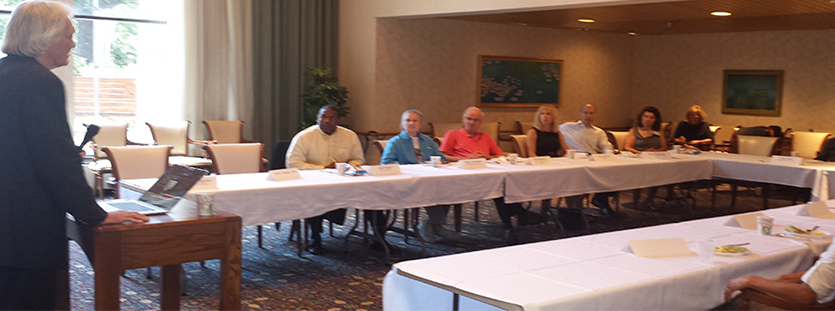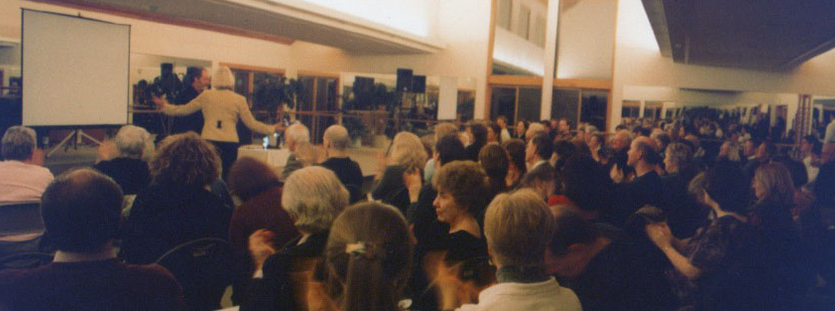Special Education
“Discovery of Self has all the components of a curriculum which can really help strengthen responsibility, creativity and self-worth. Shifting the frame of reference away from power over others to power within the self is a critical distinction that has the potential to save these children and our society a lot of unnecessary suffering. I can’t think of a more worthwhile project, personally. If we turn our backs on a whole generation of disenfranchised kids we’re going to end up living Anthony Burgess’ A Clockwork Orange. If we turn and face these kids with caring and well-thought through structured programs like Discovery of Self, then the ripples of healing will spread throughout our society.” – Joan Borysenko, Ph.D. – Tumor cell biologist, psychologist, co-founder of the Harvard Mind/Body Clinic, NY Times bestselling author.
DoS is a cross-cultural, interdisciplinary curriculum providing:
A) A framework exploring how invisible, internal, subjective states influence visible, external objective conditions/events including physical health, relationships and life circumstances.. In other words, how the worlds of the un-measurable and the measurable interconnect.
B) Strategies designed to strengthen one’s inner focus and access to personal resources as a means toward greater mental and physical performance, creativity and self-control. By developing these internal resources and controls, performance measures such as concentration, comprehension, memory, test-taking skills and health behaviors are improved. Additionally, self-concept and a sense of personal empowerment are enhanced as individuals experience the capacity to influence physical and external conditions by first changing their internal states or environment.
Participants learn to look inward rather than pointing a finger outward. Discovery of Self (DOS) delivers a curriculum that addresses the widespread sense of futility, helplessness and lack of self-worth underlying all the many choices made by our youth.
The material is broken down and presented in a format, with a workbook, accessible to participants of all ages and backgrounds. DOS has been taught in schools serving high risk youth, in prisons, in the slums of Rio de Janeiro, and on the south side of Chicago for a gang-intervention, re-entry from prison and jobs training initiative of Black United Fund-IL.
The main goal of DoS is to develop students’ school and work readiness skills and attitudes, to maximize work and life opportunities. We achieve this by significantly increasing optimism, confidence, connectedness, self-awareness, self-regulation (of mood and physiology), and personal responsibility. More
“DoS helped ADHD person to be more calm by using diaphragmatic breathing and focusing. Help ADHD person to avoid reacting (buttons) from other people’s behavior. Hate is a curved blade, if you are hating someone else it really stabs you.” (Spoken by Antonio, written down by his teacher) Antonio/5th
There are also many secondary positive gains relative to:

“This class has taught me that things aren’t always as bad as they seem. I used to just snap and not calmly think things through. Doing things this way used to get me in a lot of trouble. I learned imagery and how to use it in different situations.” Paul Hill – American Indian OIC, School To Work Program
“DOS is a class that helps you get in with your inner self. It also helps you with your breathing and it deepens your concentration and thoughts. It’s to help you control yourself. It helps you live a much more positive life and it can help you get the anger out of your body and put more positive feelings in your heart.” Keenan Christopher – Skills for Tomorrow High School
“Jane is a passionate advocate for struggling students. Her energy and belief that all students have endless potential is contagious. I know her talents extend to work with many populations including executives, and there is wide benefit to her confidence in human capacity. This belief – partnered with her personal commitment to learning, setting and meeting impossible goals – sets her apart from the rest” Chanda Smith Baker, President and CEO, Pillsbury United Communities
“Those who have taken the Discovery of Self program not only were behaved and more eager to discuss it than other students, but their conversation came straight out of the curriculum: “You can change your world by changing yourself.”” Kay Miller – Star Tribune article, “Kids Other Schools Don’t Want Find Help in Harrison Program Sat, June 6, 1992”
“I see students participating who wouldn’t usually participate. A student who usually acts out until kicked out of class sits quietly – often afraid to talk or make eye contact – but listens …Students have become vocal about their feelings about Discovery class: “Discovery is cool” “They talk about interesting stuff. I don’t know what it is, but we want to talk in there.” Chris Seilor – Special Ed Teacher, Capitol View
“It was so good to hear about these things that make me believe in my dreams and my goals. It was important to learn the diaphragmatic breathing and how to stay focused and stay calm. This class was a wonderful experience for me.” Marcello, age 15, Rio de Janeiro, Brazil
“Can we do our breathing exercises today, Mrs. Krig?” “I practice breathing every day in the shower,” Ramon reports. “I think we should stop and do our breathing,” suggested a young man after spending some time in a restless, disinterested English class a few weeks ago. “He’s using mind over body, isn’t he?” a perceptive student remarked as he paused to consider the actions of the main character in the novel being read in class. ” I can will myself to do it if I choose to.” “The mind is more powerful than we realize,” observed another. These comments and similar observations have been common in my English classroom at Hennepin County Home School ever since Jane Barrash introduced us to the Discovery of Self program. I had first read about the program in a spring 1992 issue of the Star Tribune and was fascinated.” Barbara Krig – Hennepin County Home School.
END OF MORE
“The DOS curriculum has challenged [students’] existing beliefs, not only about school and what is taught, but also about their own ideas and beliefs about how they are and how the world is and how it could be. Therein lies the opportunity for change.”
Ms Fessler- Capital View
“I’ve learned how to just drop stuff, how to see others’ points of view and how to approach others in a respectable way.. If it wasn’t for the DoS program, I would still be the little kid in Jr. high with problems.”
Careino Gurley – 15 years old
“The material is pertinent and meaningful to this age group, this difficult to reach student population, and to students of all cultures and ethnic backgrounds. Participating in this experience has been exciting and motivating…I believe it could make a dramatic difference.”
Barbara Krig – Teacher, Hennepin County Home School for boys







